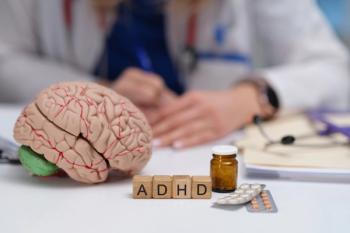
ADHD Medications: A Look at Their Safety Profile
Each year in this country, physicians prescribe medications to treat ADHD in nearly 3 million children. The safety of these agents has been the subject of some debate.
Each year in this country, physicians prescribe medications to treat ADHD in nearly 3 million children. The safety of these agents has been the subject of some debate.
Here to discuss the issue of the cardiovascular safety of stimulants, atomoxetine, and alpha-agonists used to manage ADHD is Joan Daughton, MD, Assistant Professor of Child Psychiatry at the University of Nebraska Medical Center in Omaha. Dr Daughton is also Training Director of the Creighton-Nebraska Child and Adolescent Psychiatry Training Program and Post Pediatrics Portal Program at the University of Nebraska Medical Center.
Dr Daughton also details the essentials of a baseline assessment and cardiovascular evaluation before ADHD therapy is initiated and briefly reviews scientific statements issued jointly by the
ADHD Medications
References
• Cooper WO, Habel LA, Sox CM, et al. ADHD drugs and serious cardiovascular events in children and young adults. N Engl J Med. 2011;365:1896-1904.
• Treatment of ADHD in children with tics: a randomized controlled trial. Tourette's Syndrome Study Group. Neurology. 2002;58:527-536.
• Vetter VL, Elia J, Erickson C, et al. Cardiovascular monitoring of children and adolescents with heart disease receiving medications for attention deficit/hyperactivity disorder: a scientific statement from the American Heart Association Council on Cardiovascular Disease in the Young Congenital Defects Committee and the Council on Cardiovascular Nursing. Circulation. 2008;118;2407-2423.
• Erratum in: Circulation. 2009;120:e55-9.
Newsletter
Access practical, evidence-based guidance to support better care for our youngest patients. Join our email list for the latest clinical updates.








